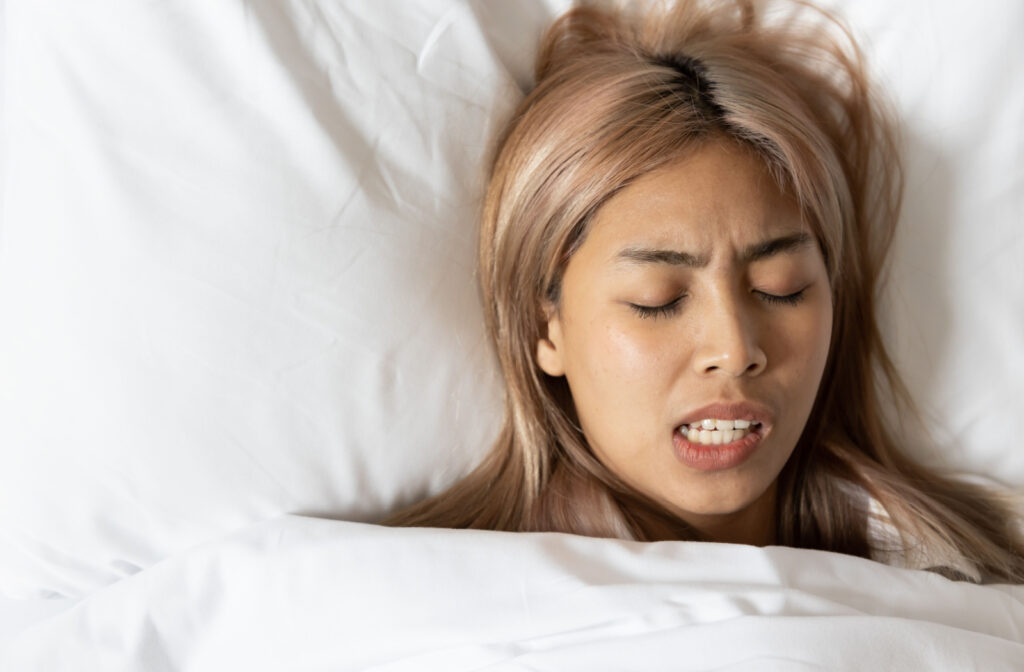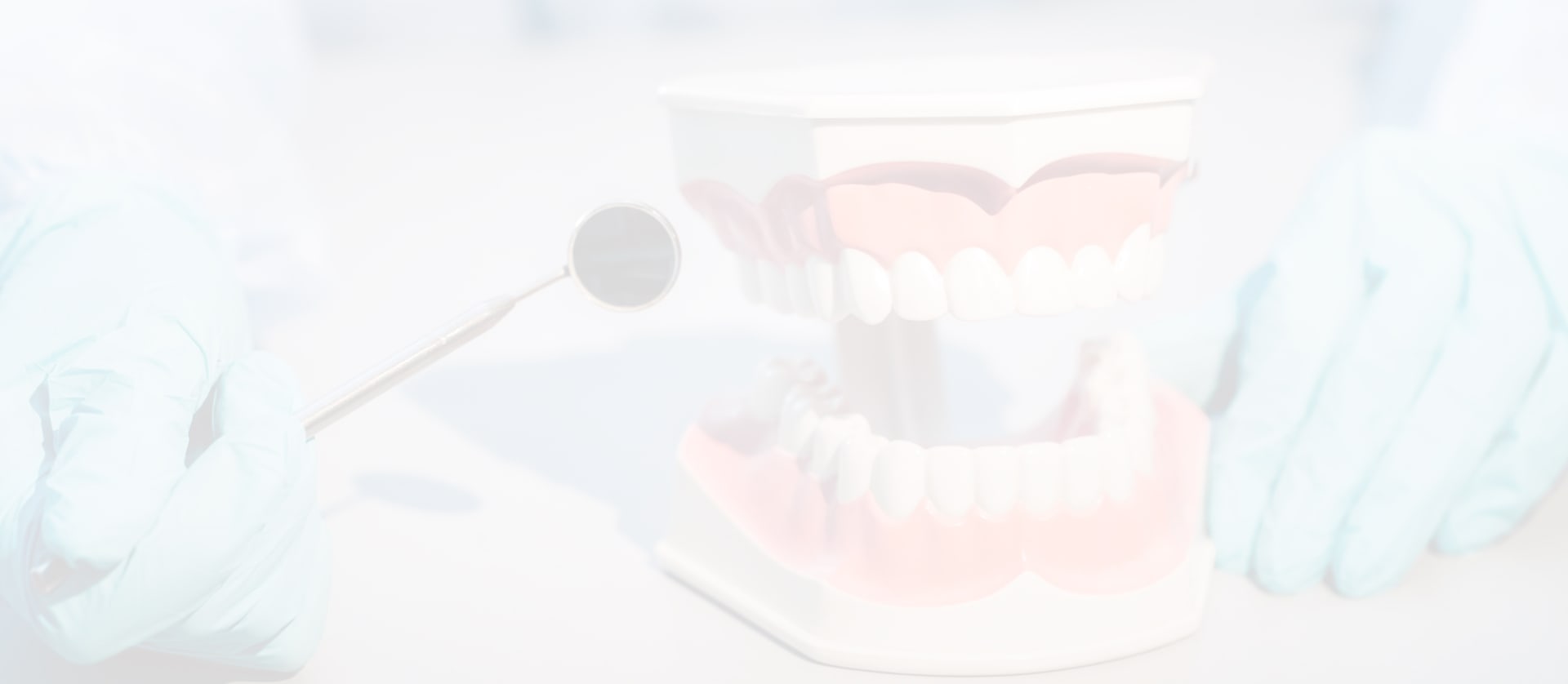Teeth grinding, also known as bruxism, is a common yet often overlooked habit that affects a significant portion of the population. In regular cycles of our daily lives, we may not even realize this unnerving activity is taking place unconsciously as we sleep, silently wearing on our teeth and straining our jaw.
For many, it’s a condition that goes unnoticed, though the aftermath can be uncomfortable, even requiring a dental intervention. Your partner may bring the habit to your attention, but it’s not uncommon for the action to slip by everyone’s notice. To know if you grind your teeth at night, you’ll have to look out for daytime symptoms, such as jaw pain, headaches, and tooth sensitivity.
What is Bruxism?
Grinding your teeth can occur during the day or while asleep, the latter commonly called sleep bruxism. No matter the timing, the persistent gnashing and grinding can result in oral health complications that might require intervention. The exact cause of sleep bruxism is unknown, but it’s often linked to stress and anxiety.
If not addressed, not only does it wreak havoc on your teeth and jaw, but it can also have far-reaching effects on sleep quality, leading to chronic fatigue and other health issues. Understanding the signs of this behaviour can be the first step towards preventing potential long-term damage.
Signs & Symptoms of Nighttime Teeth Grinding
The physical signs of sleep bruxism can be subtle at first but may escalate if left unaddressed. Your dentist can look for damage directly during an exam, but between check-ups, it’s up to you to recognize the symptoms.
Jaw Pain or Soreness
One of the most common complaints among bruxism sufferers is waking up with a sore jaw. The jaw muscles are extremely powerful and the act of grinding can put intense strain on these muscles, leading to discomfort and pain.
Chronic teeth grinding can alter the alignment of your jaws, leading to temporomandibular joint (TMJ) disorder, a condition that causes pain in the jaw joint and the muscles that control jaw movement. You may feel this discomfort as high as your temples or in your facial muscles.
Headaches
Unexplained headaches, especially upon waking, can indicate sleep bruxism. The muscle tension that grinding creates can radiate pain throughout the head and neck area.
Tooth Sensitivity
Excessive grinding can wear down the enamel, the protective layer of your teeth. Over time, this can lead to tooth sensitivity, particularly to hot or cold foods and drinks. It could even, in time, cause tooth fractures or the feeling of loose teeth.
Disrupted Sleep Patterns
Constant grinding can disrupt sleep, potentially leading to insomnia or other sleep disorders. This can create a vicious cycle, as disrupted sleep is also a known cause of bruxism.
Physical Changes
The pressure from teeth grinding can cause the muscles on each side of your face to enlarge and become more square. You may also notice your gums receding, though both these symptoms can be difficult to link directly to teeth grinding.
Common Causes of Teeth Grinding
The drivers behind this nocturnal habit aren’t always straightforward, but recognizing them is crucial in finding solutions. Common factors believed to be behind sleep bruxism include:
- Stress and anxiety: High stress, anxiety, and tension are among the primary causes of sleep bruxism. Those frequently under emotional duress are more likely to clench and grind their teeth.
- Sleep disorders: Bruxism is sometimes associated with specific sleep disorders, such as sleep apnea. This disorder, in which breathing repeatedly stops and starts, can result in tooth grinding as a coping mechanism related to poor sleep quality.
- Malocclusion (Bad Bite): Imbalances in how the teeth fit together—such as an abnormal bite—can lead to bruxism as the body attempts to find a more comfortable resting position for the jaws.
- Lifestyle factors: Certain lifestyle habits can predispose one to bruxism. These include heavy alcohol consumption, smoking, and caffeine intake.
Preventive Measures & Treatment Options
The good news is that your dentist can offer several effective methods for managing and treating teeth grinding, depending on your unique needs.
Stress Management Techniques
One of the easiest to prescribe, but potentially hardest to implement, solutions for sleep bruxism is reducing stress. People have a lot going on in their lives, and if you’re already feeling anxious, it can be hard to pull back from. But it’s worth putting the work in for both your oral health and mental well-being.
Learn to manage stress through techniques like meditation, deep breathing exercises, or regular physical activity.
Mouthguards
Customised night guards can provide a protective barrier for the teeth, reducing wear and tear caused by grinding. Avoid “one-size-fits-all” mouthguards, as a properly fitted mouthguard needs to even out the pressure across the jaw.
Lifestyle Changes
Simple lifestyle changes can sometimes be enough to alleviate bruxism. Avoiding stimulants like caffeine, quitting smoking, and monitoring alcohol consumption are examples of lifestyle changes that can make a noticeable difference.
Dental Interventions
For bruxism caused by a misaligned bite, your dentist may suggest treatments like reshaping teeth, orthodontics, or other dental procedures to correct the issue. To further avoid the vicious cycle of jaw pain, your dentist may also focus on managing TMJ dysfunction symptoms with medications, splint therapy, or physiotherapy.
Sleep Better with Fairlawn Dental
Ignoring the signs of nocturnal teeth grinding can be as devastating as the grinding itself. Our team at Fairlawn Dental Centre believes that proactive awareness and timely intervention can save you from a world of pain—both literally and figuratively. By recognizing the red flags of bruxism, you’re taking an essential step in safeguarding your oral health and preserving a healthy, pain-free smile.If you suspect you’re grinding your teeth at night or TMJ dysfunction has you in its grasp, book an appointment and take the first steps towards a tooth-grinding-free existence.










